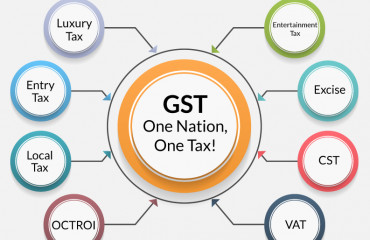
New Delhi: Goods and Services Tax (GST) authorities have dropped a plan to block generation of goods transportation permits, or e-way bills, from 1 March for companies that fail to produce 'e-invoices' for their wholesale transactions through designated portals. These portals aid in more accurate data capturing across various tax forms using a standardized invoice.
New Delhi: Goods and Services Tax (GST) authorities have dropped a plan to block generation of goods transportation permits, or e-way bills, from 1 March for companies that fail to produce 'e-invoices' for their wholesale transactions through designated portals. These portals aid in more accurate data capturing across various tax forms using a standardized invoice.
This decision likely stems from the difficulties businesses, particularly small and medium enterprises, encounter in generating e-invoices, such as increased administrative work and the need for technological upgrades.
E-invoices, readable across different software, eliminate the need for re-entering data and promote tax compliance. They automatically update transaction data in other tax documents like e-way bills and GST returns, enhancing economic activity oversight.
The initial plan to deny transportation permits to firms not issuing e-invoices for business-to-business transactions aimed to boost tax compliance. The heightened reporting demands under the GST regime contribute to the economy's formalization and tax compliance.
The National Informatics Centre (NIC), under the ministry of electronics and information technology and managing some GST reporting portals, in an update said that the plan to block e-way bill generation without an e-invoice has been deferred, without specifying a new date for its potential reintroduction.
Initially, e-invoicing was mandatory for businesses with sales over ₹ 500 crore, but now it applies to those with annual sales exceeding ₹ 5 crore. It is not required for retail sales to end consumers.
Tax experts note that linking e-way bill generation to e-invoice details offers benefits and challenges.
Rajat Mohan, senior partner at AMRG & Associates, said it could improve tax compliance and reduce evasion by aligning transportation and invoice data. However, it may increase administrative burdens, particularly for small and medium enterprises facing compliance costs and technology updates.
The transition could lead to disruptions and compliance errors. While the scheme aims for streamlined tax processes, businesses must adapt and manage potential errors in a dynamic tax environment. The government's decision to retract the proposal indicates the challenges faced, but businesses await clarity on the revised implementation timeline, Mohan added.
Since its rollout in July 2017, GST has significantly boosted revenue, with monthly collections now averaging ₹1.66 trillion, nearly double the amount in the initial GST year. This rise in indirect tax compliance has also driven an increase in direct tax collections, making the under-reporting of sales more difficult.
